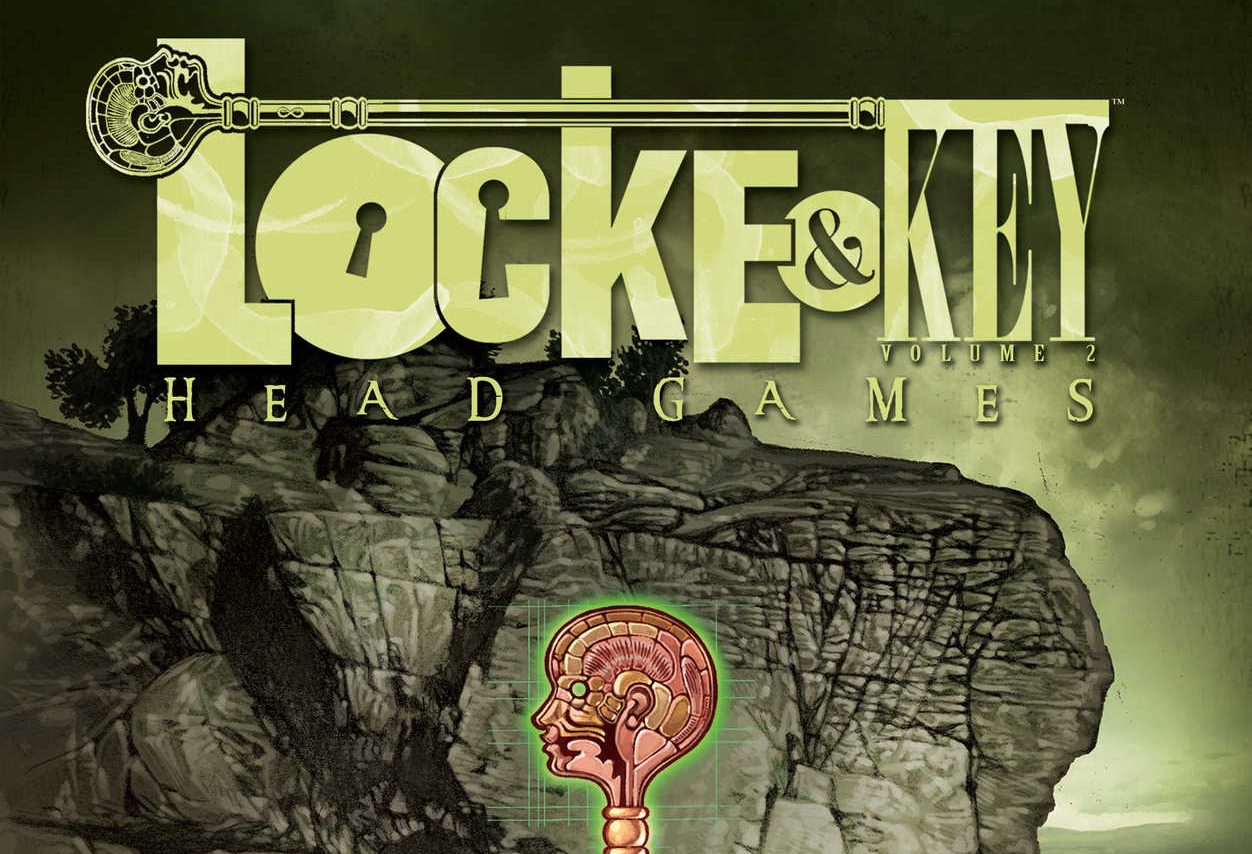
Head Games, the second volume in Joe Hill’s Locke & Key graphic novel series, focuses on the Locke siblings as they cope with life after their father’s death and unwittingly fall more under the influence of the escaped demon Dodge, who is posing as the cousin of the high school’s track coach, Ellie. Bode Locke find the Head Key, which allows the possessor to open up another person’s mind and remove or add memories, fears or knowledge. Much of the narrative of Head Games focuses on Dodge using the key to alter the minds of people who remember his earlier incarnation, Lucas Caravaggio.
One of the interesting things that Hill does in the narrative is to use the reader’s own assumptions about the characters to provide interesting misdirection, keep the story surprising, and offer a mystery right at the end of the novel that makes the reader eager to go to the third volume. It’s that element of surprise, particularly toward the end of the book when we think we have things figured out, that really helps keep the reader engaged with a story that could otherwise seem off-puttingly grim to some readers.
Most of the misdirections relate to Ellie and her mentally handicapped son Rufus. Dodge has forced Ellie to help him and he’s living in her house; in the first volume of the series, the reader learns that Dodge’s main leverage is that he murdered Ellie’s abusive mother, which she clearly has complicated feelings about (a mix of feeling she owes Dodge, and fear of him because she knows what he’s capable of, and guilt), and that’s reinforced early on in Head Games.
Because the flashbacks indicated that Ellie first knew Dodge when she dated Lucas in high school, we readers naturally assume that Ellie was a teenager when Dodge murdered her mother, much as the older two Locke siblings were teens when Dodge engineered their father’s murder. But the first scene of the “Army of One” epilog portrays Ellie as a middle-aged woman and Rufus a teenager … and Ellie’s elderly, abusive mother is still alive, chain-smoking and pressuring Ellie to send Rufus away to a group home. Things are clearly not as they seemed, and engaging the reader’s curiosity about what else is going on (coupled with the reader’s desire to see Ellie’s thoroughly horrible mother get some kind of comeuppance) drives interest in the narrative.
Another interesting misdirection centers on Rufus, who is in his mid-teens but behaves much younger. Throughout the novel, he’s mostly playing with his toy soldiers and talking to them as though they’re real. His grandmother declares he’s retarded and Dodge is likewise dismissive of him. Dodge is so crafty and so dangerous that we figure Rufus will be nothing more than a tragic victim when Dodge goes to Rufus’ room with the Head Key to “fix” him. But Dodge can’t find the expected keyhole on the back of Rufus’ neck, and reasons that “Probably heads with nothing in them can’t open.”
After Dodge leaves, though, Rufus rises in his bed, clearly having just feigned sleep, and remarks “That was close, too close … his capacity for cruelty is immeasurable.” These are not the words of a mentally-challenged teenager, and further, when he addresses his toys … they respond. Has Rufus been faking mental disability to protect his mother? Does he have supernatural power over his toys, or vice versa? These questions cleverly drive the reader on to the next volume in the series.
Leave a Reply
You must be logged in to post a comment.